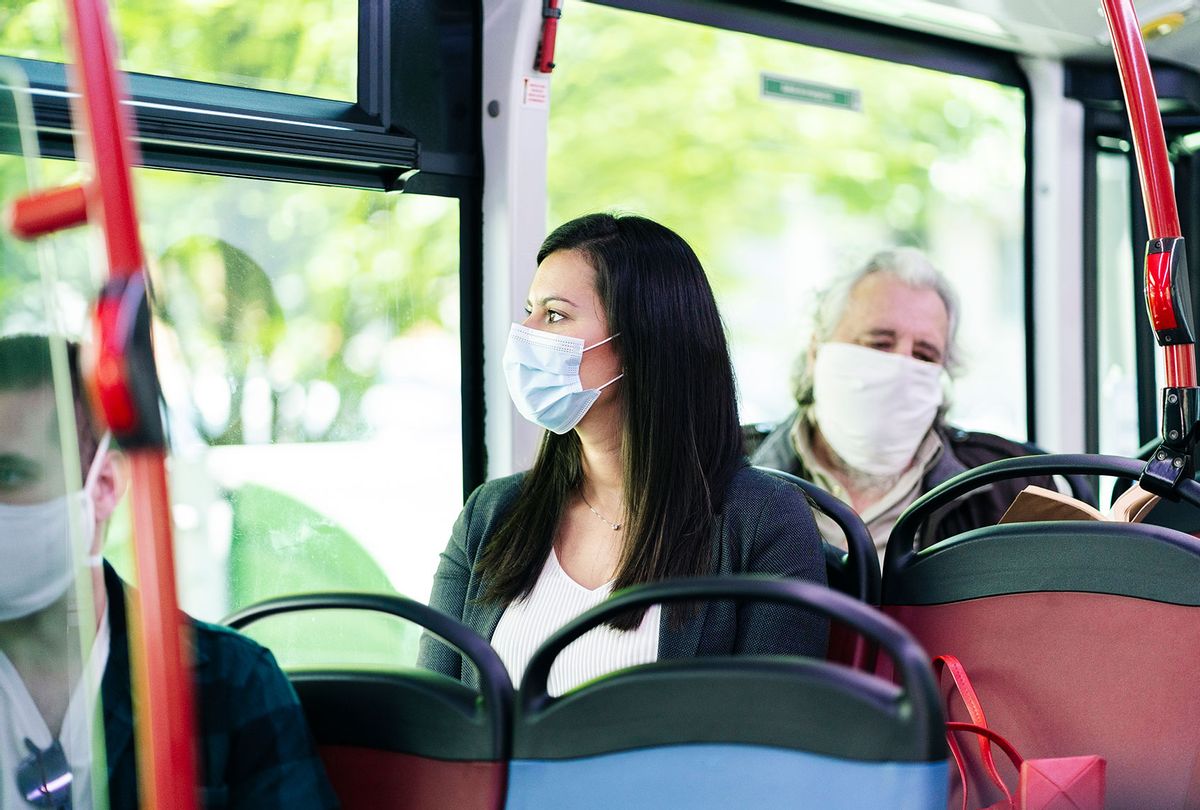On Tuesday, the U.S. Centers for Disease Control and Prevention (CDC) revised its face mask recommendations for fully vaccinated people to state that in areas with "substantial" or "high" COVID-19 transmission rates, the CDC recommends that even those who are fully vaccinated wear masks in public indoor settings.
"In recent days I have seen new scientific data from recent outbreak investigations showing that the delta variant behaves uniquely differently from past strains of the viruses that cause COVID-19," CDC Director Dr. Rochelle Walensky said at a media briefing on Tuesday. "This new science is worrisome and unfortunately warrants an update to our recommendations."
CDC officials also recommended universal masking regardless of vaccination status and community transmission rates for teachers, staff, students and visitors in schools. Dr. Walensky emphasized that in-person schooling should still resume this fall, but proper prevention strategies, and universal masking, should be put in place.
The new, unpublished data Walensky referred to indicates that vaccinated people who have breakthrough COVID-19 cases can spread COVID-19, and can have as much virus in their systems as those who are unvaccinated. Walensky reiterated that a "vast majority" of SARS-CoV-2 transmission in the country occurs among the unvaccinated population, though the CDC is emphasizing that vaccinated people should be aware that they are contagious if infected.
This new data, in addition to the prevalence of the delta variant and low vaccine rates in specific parts of the country, was the motivation for the change in guidance — a reversal from an update the CDC made two months ago, CNN reported.
Want more health and science stories in your inbox? Subscribe to Salon's weekly newsletter The Vulgar Scientist.
"We continue to strongly encourage everyone to get vaccinated," Walensky said. "Getting vaccinated continues to prevent severe illness, hospitalization and death — even with delta it also helps reduce the spread of the virus in our community."
Walensky said with the alpha variant, which was the dominant variant in the U.S. in May, public health officials did not believe that the vaccinated could transmit the coronavirus if infected. That's changed with the delta variant.
"We're seeing now that it's actually possible, if you're a rare breakthrough infection that you can transmit further," Walensky said, adding that a larger concern in public health and science is what will come from future mutations. Walensky said the "largest concern" for public health officials was that humanity may only be a few "potential mutations away" from a "very transmissible virus that has the potential to evade our vaccines in terms of how it protects us from severe disease and death."
"We are fortunately not there" yet, Walensky added.
Whether state and local health officials will enforce the agency's recommendations is as yet unclear. As Salon previously reported, many K-12 schools around the country are planning to reopen without vaccine or masking mandates.



Shares